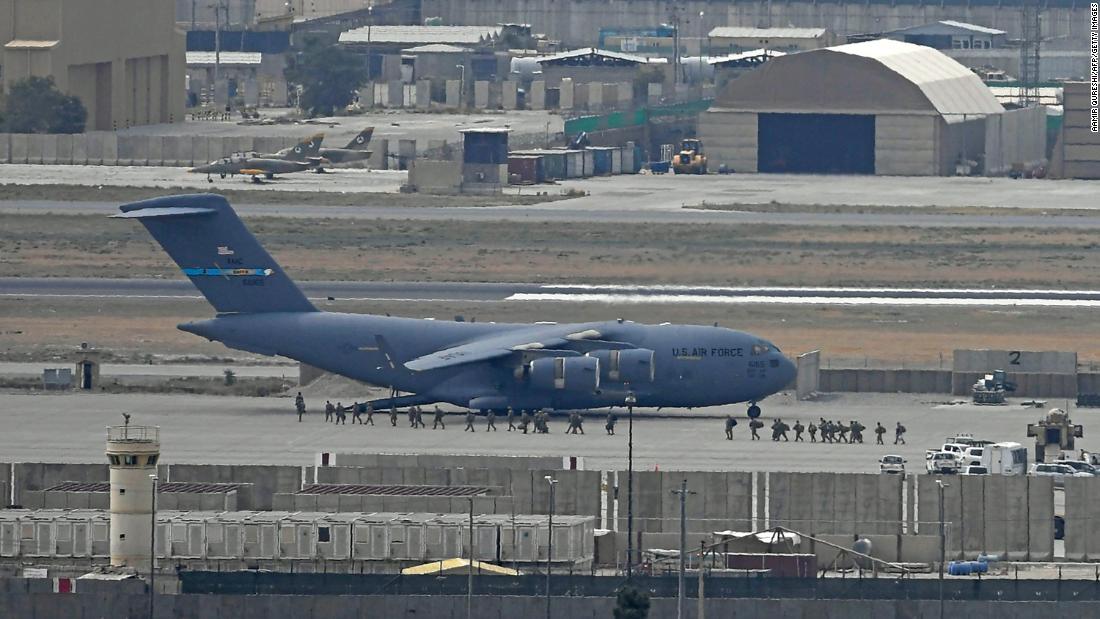Analysis: How the US got right back where it started in Afghanistan
WHAT MATTERS: The US clearly misread how quickly and completely the Afghan government would fall. Is it your sense that we should view this as an intelligence failure?
TIM WEINER: Intelligence is not a crystal ball. It can describe the patterns of the past and the present-day state of play — but it rarely can predict the future. So you can’t hang this disaster on the CIA. It’s the handiwork of four presidents and a parade of military commanders who misled them.
Afghanistan was doomed to fall when former President Donald Trump and his Secretary of State Mike Pompeo capitulated to the Taliban in March 2020. For the past 18 months, it wasn’t a question of whether America would lose but when. The unforeseen abdication of Afghanistan’s corrupt president on August 15 — reportedly with a helicopter full of cash — answered that question. It would be a matter of hours.
WM: I read something interesting in an interview with retired Gen. (and former CIA Director) David Petraeus, who was asked if this was an intelligence failure. He said, ” … there is a longstanding practice of administrations in Washington recasting a failed policy as an intelligence failure … ” and suggested that’s not the case here. What’s your reaction to that?
WEINER: Three longstanding failures made the collapse of the American-backed government in Kabul inevitable many years ago.
The second long-lasting failure was the counterinsurgency strategy pushed by Petraeus and others. American military and intelligence officers killed many thousands of Afghan civilians in their pursuit of victory. This does not win the hearts and minds of the populace.
The third was the deliberate outsourcing of “nation-building” to military contractors. The war was profitable for them. To keep the money flowing, they tended to portray their failures as successes. That pernicious practice also infected the reporting of military and intelligence officers to the White House and Congress. There always was light at the end of the tunnel — until suddenly there was darkness.
WM: The US military is very publicly leaving Afghanistan. Will the CIA shrink its presence there now too?
Without a base of operations or an embassy, American spies will have an extraordinarily hard time working in Afghanistan.
The violent power struggle among the Afghan guerrillas we supported, who destroyed much of Kabul with the weapons America gave them, gave rise to the Taliban in 1996. They, in turn, gave shelter and support to al Qaeda and Osama bin Laden.
We are back to where we were 25 years ago. Afghan guerrillas have defeated a superpower and made their country an inviting hostel for a new generation of aspiring terrorists. And the CIA will have very few American spies on the ground to assess that threat — perhaps none for the foreseeable future.
WEINER: The 9/11 generation of counterterrorism officers and analysts at CIA has now been on the job for 20 years. They are tired — and, I suspect, disheartened by the American defeat in Afghanistan. As in the military, 20-and-out tends to be the rule. The CIA will need to train a new generation to replace them. And that will take years.
WM: There is a long list of events the CIA either missed or didn’t appropriately prepare the country for. I’d put the fall of the Iron Curtain, the threat of al Qaeda before 9/11, the threat of WMD in Iraq after 9/11, the rise of ISIS as the US pulled out of Iraq, foreign election meddling. The list goes on. Would you say there are a large number of unknown and still classified intelligence success stories that outweigh these failures?
WEINER: Certainly, some successes will stay secret for years to come. That they outweigh the failures you describe is dubious. Intelligence is a human endeavor and thus prone to failure. And America is a newcomer in the field, when you think about it. The CIA has been in business for 75 years. The Russians have been at it for 300 years, since the days of Peter the Great, and the Chinese have been refining the practice ever since Sun Tzu wrote The Art of War 26 centuries ago.
Even when intelligence succeeds — for example, in predicting an attack — that doesn’t mean presidents and military commanders will heed it. Foreknowledge doesn’t always forestall disaster. President George W. Bush essentially ignored the CIA’s warning that bin Laden was determined to strike America 20 years ago. Knowing that ISIS-K would attack in Kabul in recent days — and the forewarnings were strikingly accurate — didn’t keep them from killing Americans and Afghans.
Intelligence is a difficult, dirty, often dangerous business. When it succeeds, it can save lives. But when it fails, people die.
![]()


